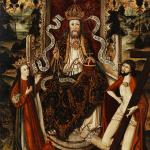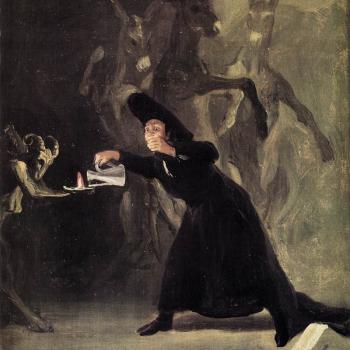
Paul J. Griffiths has a recent piece on work, worship, and leisure. The first two are, he says, the only two things under the sun. When Qoheleth speaks of our vanity, of the fact of ever-enduring tedium, he is directly addressing our perverse desire for otium, our feeble grasping after release from the Benedictine tagline: ora et labora. We are fallen, cursed to work to meet basic necessities and then fail to do so anyway—that is, we end up cold, dead, and in the ground. Worship prefigures the kingdom, the one without work that we know is coming, but can now only glimpse. We fetishize leisure, he argues, because these are hard truths. We like the idea of sitting around, doing nothing (I know I do). But, according to Griffiths, this is narcissism; it’s inextricably bound up with a desire to have nothing but oneself, no one to be responsible to or for, a release from anything resembling relationships, except perhaps for one’s relationship to oneself. Sounds a bit like summer vacation to me—or at least how I imagine it in May, as it creeps closer. By June I tend to remember how debilitating leisure can be.
To that end, to really get the drive and passion of his contrarian and contraposed prose, his “solution” is worth quoting at length:
Two things, in the fallen world, do have a part to play. They are work and prayer, or, if you prefer (and probably this is a better thing to say) work and worship. St. Benedict’s command, ora et labora, has this right. Work is the temporary remedy for the damage done by the Fall; and worship (prayer) our only anticipation of and proleptic participation in life eternal. Neither is leisured. Both are relational. Neither is narcissistic. Both divert narcissism’s self-fascination outward into other-directed action.
More on work. Since the Fall we have necessities that must be met if we are to go on living. These include: food and drink; sleep; shelter and clothing to protect us from the elements; care for the sicknesses and corruptions of body and mind. Work’s principal purpose is to provide these necessities. That is why it is a curse: it responds to damage, and does so feebly and ineffectually. In spite of all our work, we still suffer and die. But we Christians are required to meet these necessities. We are required, then, to work without end until our work fails us. When it does, we die. Work, then: labora! It is an imperative. Sometimes, there is more to work than this; sometimes it is beautiful, sometimes it is pleasing, sometimes it gives glory to the LORD. But those blessings are epiphenomenal. To treat them as if they were more, as if they ought be expected or sought, is to misunderstand what work is and to take the first steps toward treating leisure-as-otium as a good.
More on worship. The LORD has given us the sacraments and a pattern of life ordered by response to them. We are baptized, and thus redeemed from the curse of death; we eat and drink the body and blood of Jesus, and are thus moved toward a condition in which we can embrace the Triune LORD fully in the resurrection. We confess our sins and receive absolution for them, thus being healed of self-effected damage. And by unction we are prepared for death. We need, we must learn how, to participate in these gifts and be re-formed and transfigured by them. We are given all we need to do that; our only task is to accept it. But that habitual and repeated acceptance takes time, and so we need time exempt from work—exempt, that is, from the failing struggle for food, clothes, shelter, and medicine. But time exempt from work is not time for leisure-as-otium; no, it is the time of Sabbath rest which, in a damaged world like ours, means only a breath-long respite from work in order to worship. Our worship prefigures for us what a world without work—a heaven—would be like. It is not a world of leisure; it is, rather, a world in which staving off death is no longer necessary because death is no longer with us. In that world, work is not replaced by leisure, but rather with ecstatic love in which there is no space for the thought of or desire for leisure because the self that might want it is now absorbed beyond the possibility of first-personal awareness in the inbreathing and outbreathing rhythm of the gift given and returned.
Ora!, then: that is the other thing Christians do and must do. And there’s no third thing, nothing between work and worship here below. There is no otiose time; there is only the metronomically death-dealing time of work and the breathingly repetitive life-giving time of the liturgy.













